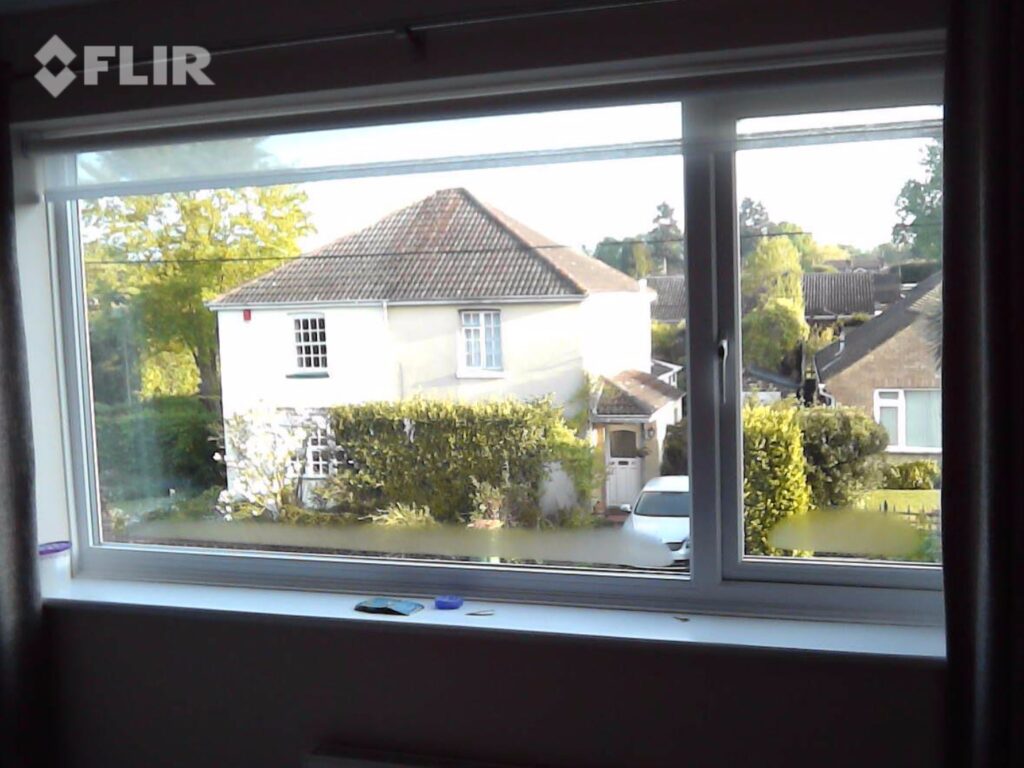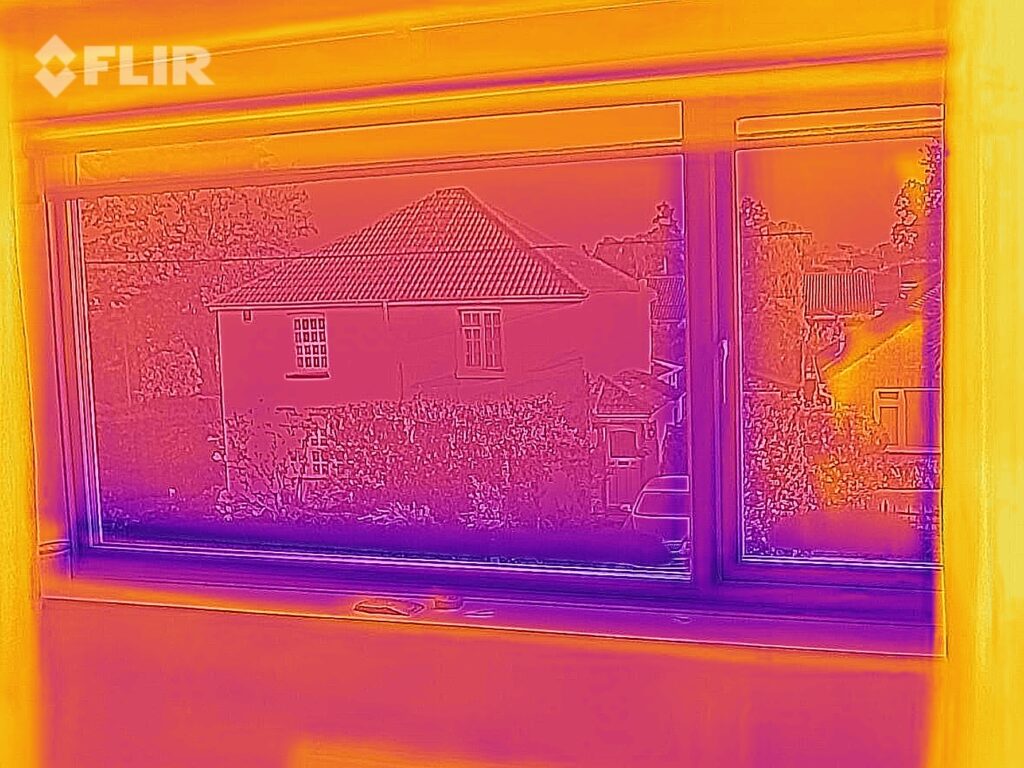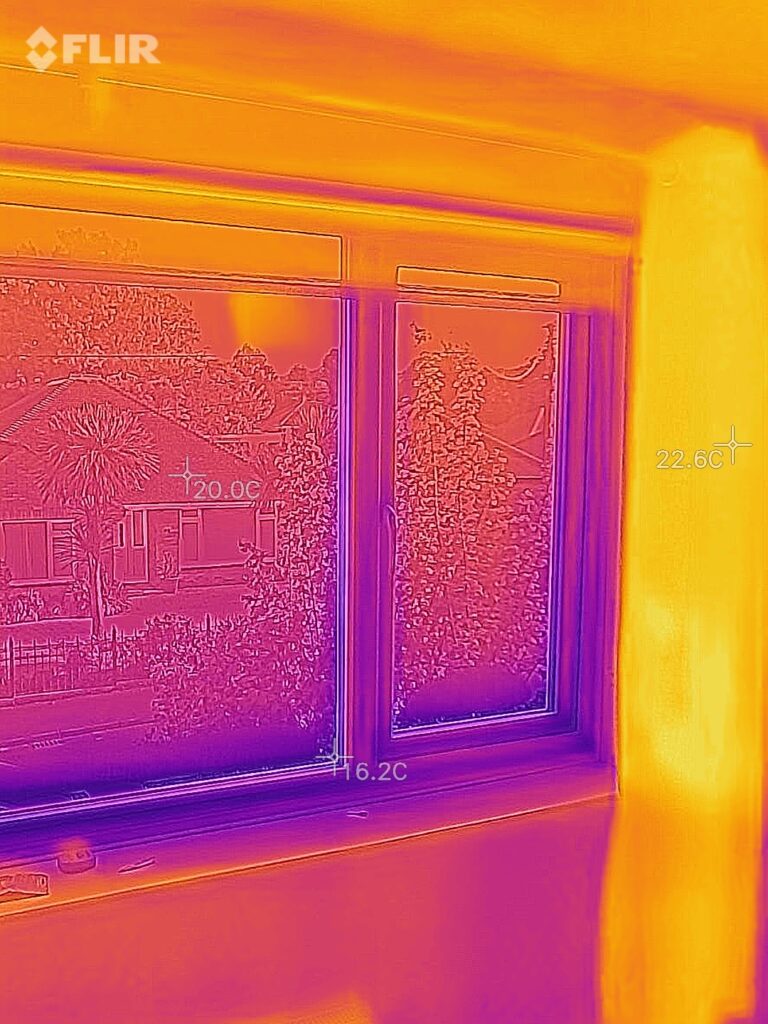Thermal imaging camera inspection and FLIR investigations
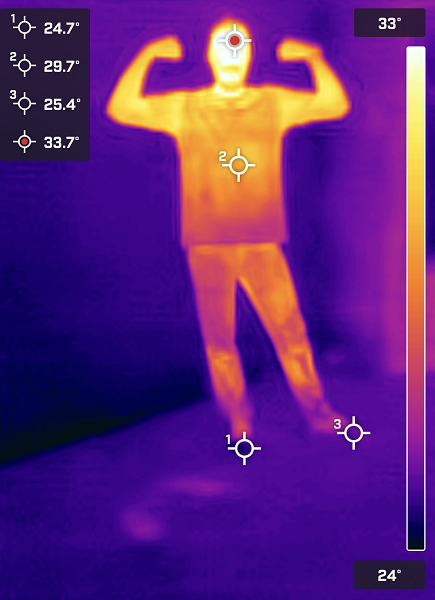
What are thermal imaging camera inspections and FLIR investigations professional services?
Thermal imaging camera inspection and FLIR investigations is a professional service Adrian Walker offers you to create potential solutions to your heat and damp-related problems.
Adrian Walker can visit your site, home, or workshop with a small FLIR Thermal imaging camera, that will show a heat map of an area and sample temperature points.
This is a good starting point for potentially solving your heat and damp-related issues and in a lot of cases will lead to a resolution or a solution to the issue.
What are thermal imaging camera inspections and FLIR investigations?
FLIR stands for “forward-looking infrared” and is a term and name for a thermal imaging camera system.
We have a small camera that is used for Investigative work, and we use this to identify areas of concern or that need inspection.
The process will highlight heat with hot and cold zones and it can be used to detect issues including but not limited to:
- Heat loss, this could be leaking doors and windows or bad seals.
- Damp, this could show areas of potential dampness and water ingress.
- Cold zones, could be due to thermal conduction in walls, or issues with pipes or machines.
- Overheating, this could be parts on a machine or an engine or even a human body in a work zone
- Heat tracking, heat maps of recent heat zones i.e footprints or possible animal tracking or runs
- Cooling issues, this could be equipment that is boxed in and needs the best cooling methods / vent locations.
The small camera we use will assist in all sorts of areas and problems but in some cases, a much higher specification camera could be required. If this is the case we would advise you and could look into the potential hire of equipment for the specific job.
What can be done with the thermal imaging camera?
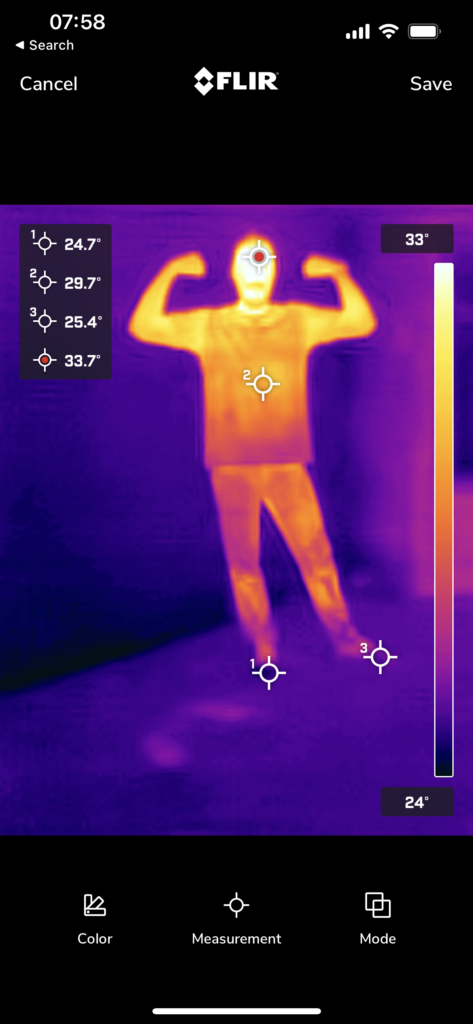
Heat detection and thermal mapping
In the image above a picture has been taken of a human being and in the image, 3 temperature sensors have been placed on the body numbered 1 to 3.
In the image on the left is a box showing the temperature at each sensor point and the highest temperature in the scene, which in this case is 33.7 degrees and is pinpointed to the forehead of the human!
On the right is a bar graph showing the color mapping of the temperatures in the scene.
Ranging from 24 degrees at the bottom / coldest and 33 degrees at the top / warmest.
The colors are varying from Blue coolest to white hottest.
You can also see the footprints of a previous standing position, still showing a heat map but they will eventually cool down and not be visible.
The image above shows a range of heat detection in a single scene.
With a very cool consistent ambient room temperature shown in blue, the general body heat map shows higher heat in the head area and you can see the heat trail with the cooling footprints on the floor.
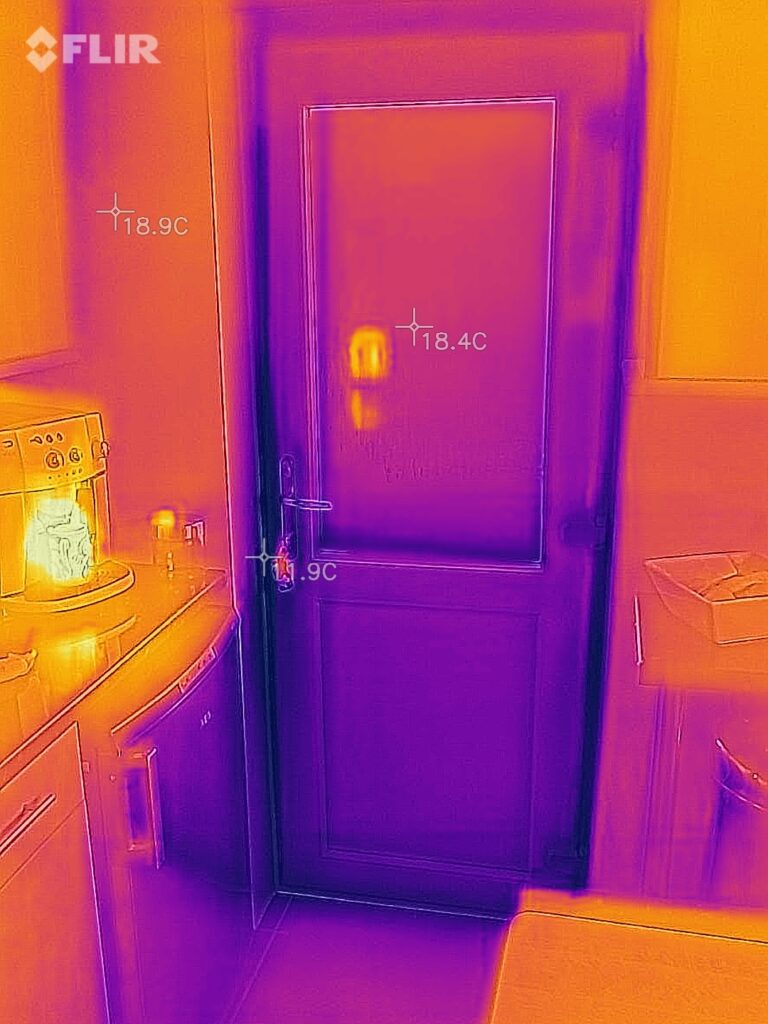
Identifying cold points
Thermal imaging is great for finding hot and cold points/areas.
The kitchen door that is shown in the image above has three temperature sensors placed and you can see the distinct temperature drop around the lower side of the door and in particular the locking area. The door in general is badly sealed.
The ambient temperature is around 18.9 degrees but at the lock, it is reading 11.9 degrees Centigrade, a 7-degree drop in temperature is quite bad, especially for a new double-glazed product!
Also, note the freezer under the counter on the left has a lower temperature on the stainless steel door, and note my coffee cup on the left which is still in the coffee machine and piping hot!
I like a good coffee when it is on offer 😊
Condensation issues.
Condensation is an issue for many homeowners. condensation forms when cold air hits a warm surface and then condensates.
Condensation on this bedroom window can be seen clearly along with the possible cause. Have a look at the three images in the gallery above.
- Image one shows the window as normal with condensation on the lower part.
- Image two shows the same window and view with the FLIR on.
- Image three shows the temperature drops.
Condensation is clearly shown in the first image with no FLIR on and you can see a band of blue where the condensation is in the same image with the FLIR switched on.
You can also see a second band of blue at the base of the window, which is the cold zone and where cold is coming in from under the window.
Temperature sensors are placed in the FLIR scene and as you can see the window midway shown in red is 20 degrees Centigrade but the lower corner is 16.2 degrees Centigrade, which is showing a 4-degree drop at the specific point.
Heat loss issues detected.
Thermal imaging camera images below show a variety of issues with double-glazing products, from bad seals to twisted frames, all sorts of issues can be identified.
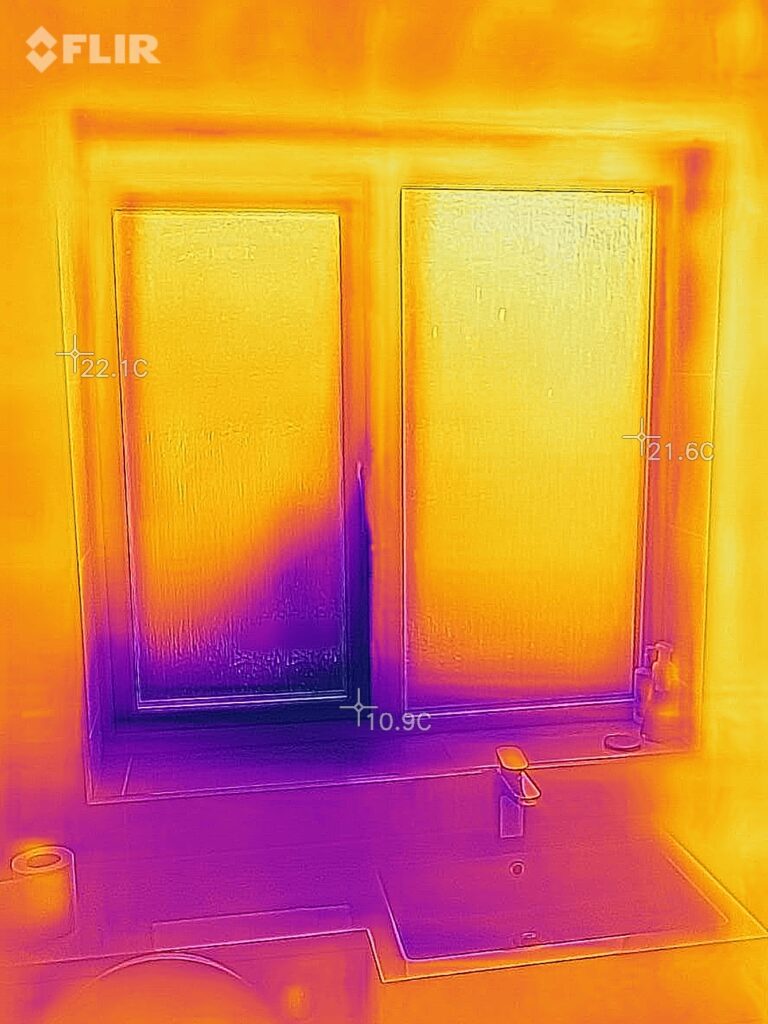
This bathroom window is showing a really big heat drop from around 22 degrees Centigrade down to 10.9 degrees Centigrade in the bottom right-hand corner!
This is due to the window not shutting properly in the lower right-hand corner on the locking side.
The issue was identified as a twisted window frame, the gap was far too big to adjust out on the hinges so it needs re-fitting / replacement.
You can also see how the cold air is spilling down over the sink unit.
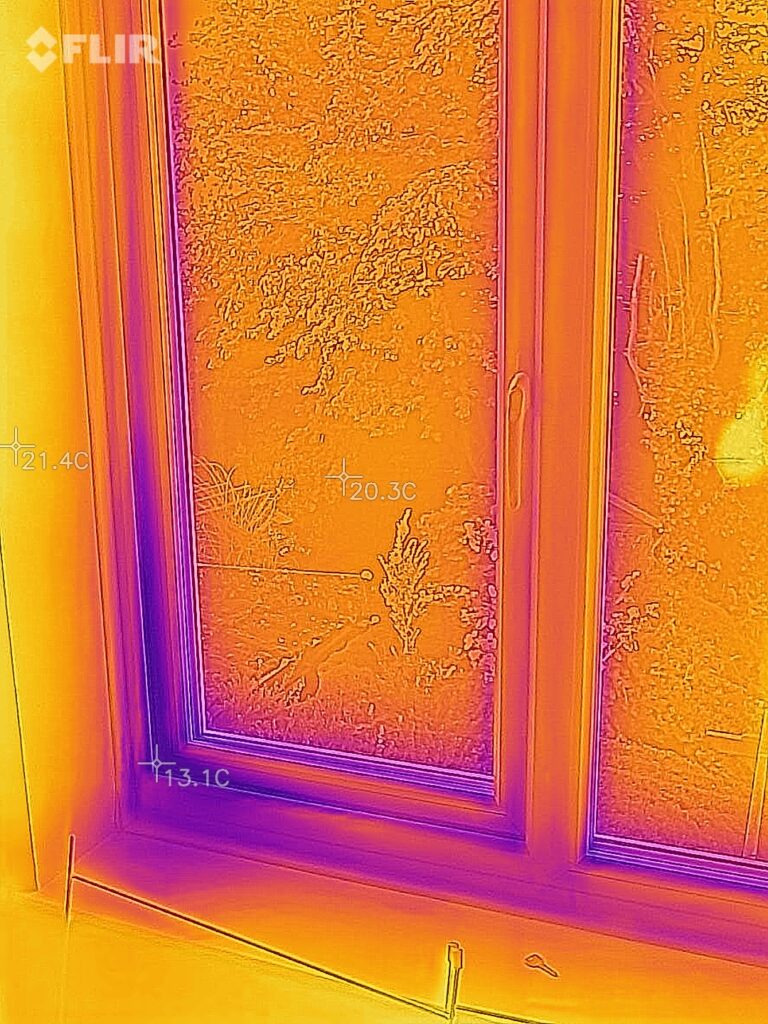
Above is a bedroom window with a gap in the lower right on the hinge side. Showing a 7-degree ish drop, another twisted frame that needs re-fitting or replacement.
Note this is from poor installation / bad workmanship!
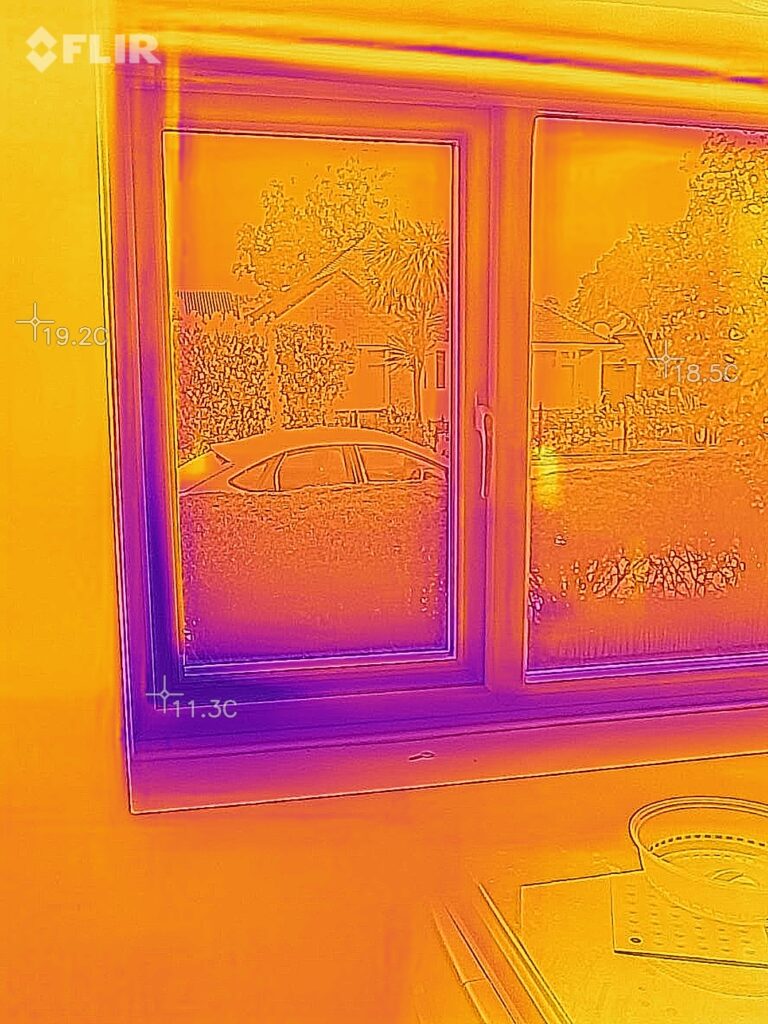
A kitchen window lets the cold in and loses valuable heat for the home.
Approximately an 8-degree centigrade drop from a badly fitted window frame that has a twist in it.
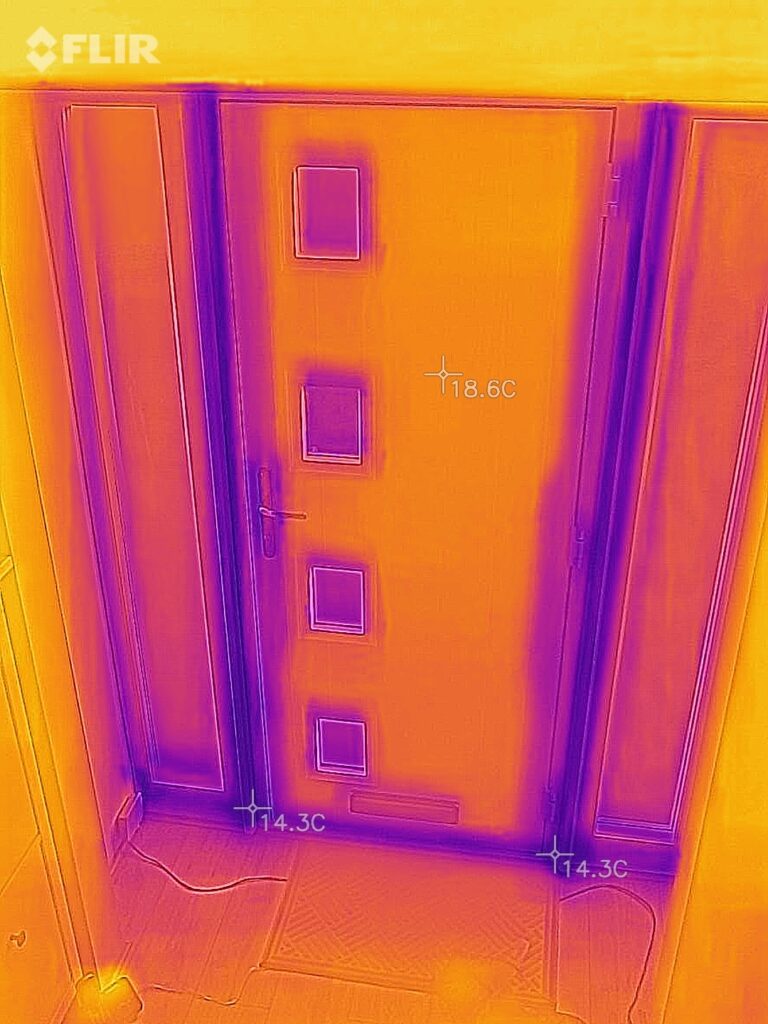
Badly sealing front doors can be identified, this door has an approximate 4-degree centigrade drop around the periphery and it is due to the seals not sealing against the mating faces.
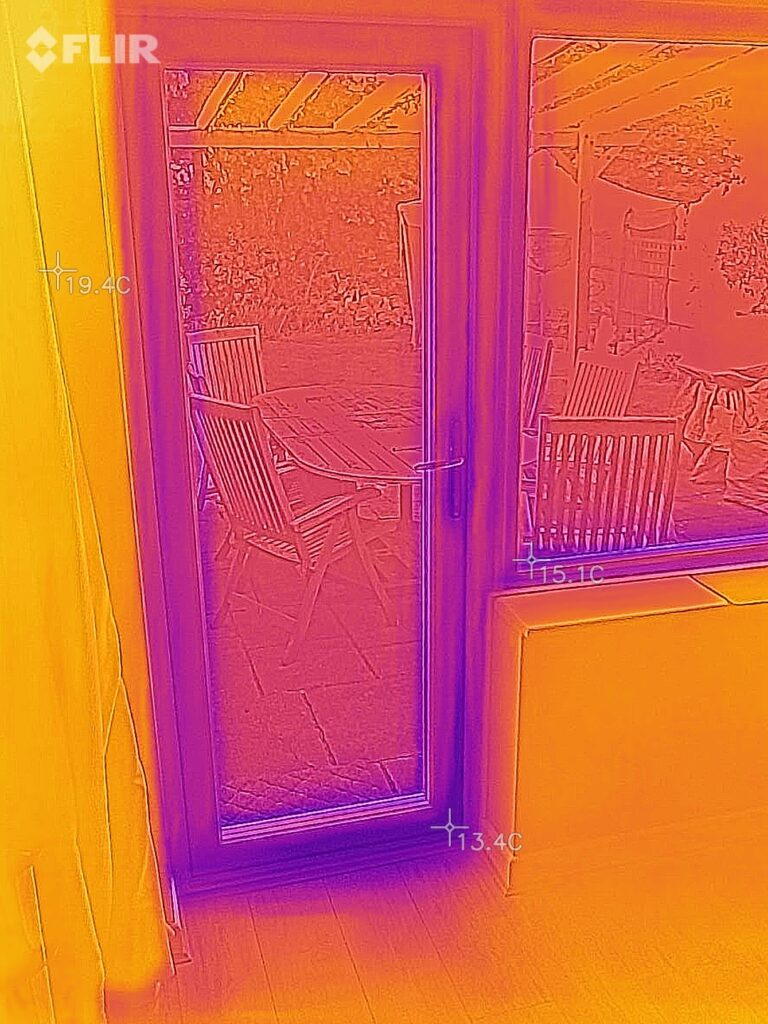
A living room door window combination with temperature drops on the bottom of the window and lower right-hand corner of the door.
The door is due to a twisted frame from a bad install, the lower end of the window is due to a large gap under the window where the window frames have been made too small and then fitted in the recess, packed up, and the recess/gaps filled with expanding foam that was sealing properly nor a draft excluding type.
The installers did cover up big gaps around the property with large unsightly trims… around all the windows in this house.
Large door/window combinations can have a temperature drop due to the mass area of glass which is a bad thermal conductor, but there are options to overcome this with better products i.e triple glazing.
you could have your old installation inspected which may help you decide on your new installation going forward for better heat retention.
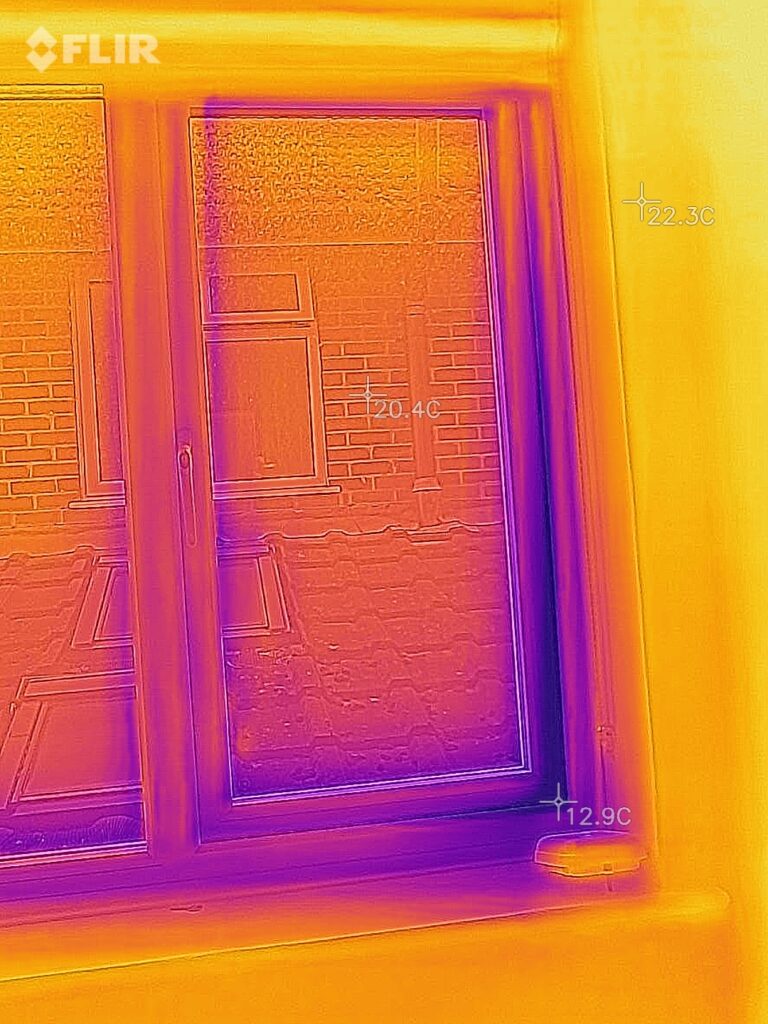
Twisted frames caused cold air to come in on this landing window with an approximate temperature drop of 7 degrees centigrade. You can clearly see on the right-hand side which is the hinge side a big gap is causing cold air to breach the property.
Have you got a project or problem to solve? contact Adrian Walker for a solution
Detailed design work by Adrian Walker.
What will your project be?
J786

